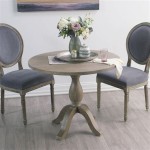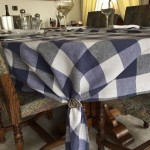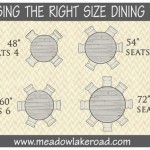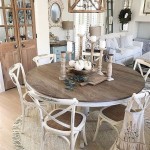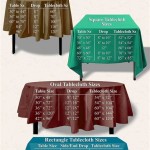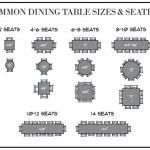Round Dining Room Table: A Perfect Fit For Any Home
The concept of a "perfect fit" is often subjective, dependent on individual needs and circumstances. When considering the needs of individuals experiencing homelessness, "home" can be reinterpreted more broadly to encompass any space where meals are consumed and community is fostered. Within this context, a round dining room table, while seemingly a conventional piece of furniture, can offer surprising benefits and address specific challenges faced by this population. This article will explore the rationale behind the assertion that a round dining room table can be a practical and beneficial addition to spaces serving those experiencing homelessness, focusing on its impact on community building, space optimization, and accessibility.
Promoting Community and Social Interaction
One of the most significant benefits of a round dining room table is its inherent capacity to foster a sense of community. The circular shape eliminates the hierarchical dynamic often associated with rectangular tables, where individuals seated at the head and foot may inadvertently be perceived as holding positions of authority. A round table promotes equality, encouraging interaction and conversation among all seated. This is particularly important in settings such as homeless shelters, transitional housing facilities, and communal kitchens, where fostering a sense of belonging and mutual respect is crucial for the well-being of residents.
The absence of corners encourages eye contact and facilitates natural conversation flows. Individuals are more likely to engage with one another when they feel they are on equal footing, and the round table format inherently supports this. This can be especially valuable for individuals who have experienced social isolation and marginalization. The shared meal experience, facilitated by the inclusive design of the round table, can become a catalyst for building relationships and establishing support networks. These networks can be vital for navigating the challenges of homelessness and rebuilding lives.
Furthermore, the circular design promotes inclusivity for individuals with varying levels of social skills and confidence. Those who may be hesitant to participate in larger group settings may find it easier to engage in conversation in a smaller, more intimate setting around a round table. The visual openness of the design allows for nonverbal cues to be easily read, further enhancing communication and understanding. This can be particularly helpful for individuals who may have experienced trauma or have difficulty expressing themselves verbally.
The act of sharing a meal is a fundamental aspect of human connection. The round table provides the physical space and social context that facilitates this connection, allowing individuals to come together, share their experiences, and build a sense of community. This is a crucial element in addressing the social and emotional needs of individuals experiencing homelessness, contributing to their overall well-being and fostering a sense of hope for a more stable future.
Optimizing Space and Enhancing Accessibility
In many facilities serving individuals experiencing homelessness, space is a premium. Shelters, transitional housing units, and soup kitchens often operate within limited square footage, requiring careful consideration of furniture placement and utilization. A round dining room table can offer a more efficient use of space compared to rectangular tables, particularly in smaller rooms or awkwardly shaped areas. The absence of sharp corners allows for smoother traffic flow and reduces the risk of accidental bumps and injuries, which is especially important in crowded environments.
Furthermore, round tables can often accommodate more people in a smaller area than rectangular tables. While the seating capacity will depend on the diameter of the table, the circular design allows for chairs to be placed closer together without compromising comfort or accessibility. This is particularly beneficial in facilities that need to maximize seating capacity during meal times or group activities.
Accessibility is another crucial consideration. The absence of corners makes it easier for individuals using wheelchairs or other mobility devices to approach and utilize the table. The smooth, continuous edge allows for unrestricted movement and eliminates the need to navigate around sharp angles. This is particularly important in ensuring that all individuals, regardless of their physical abilities, can participate fully in communal meals and activities.
The placement of a round table can also contribute to the overall ambiance of the space. Its softer, more organic shape can create a sense of warmth and welcoming, contrasting with the often stark and utilitarian atmosphere of institutional settings. This can help to create a more comfortable and inviting environment, which is essential for fostering a sense of belonging and promoting positive social interactions. In spaces where design aesthetics are often overlooked due to budgetary constraints, the simple addition of a round table can significantly improve the overall experience for residents.
Promoting Inclusivity and Practicality
The design of a round dining room table is inherently inclusive. Its shape lacks any inherent hierarchy or dominance, creating a sense of equality among those seated around it. This is especially significant in environments where power dynamics and social hierarchies can be particularly pronounced. A round table can help to level the playing field, fostering a sense of mutual respect and dignity among individuals from diverse backgrounds and experiences.
Beyond its symbolic value, the round table also offers practical benefits. Its smooth, continuous surface is easy to clean and maintain, which is essential in environments where hygiene is paramount. The absence of corners eliminates potential traps for food particles and dirt, making it easier to maintain a sanitary eating environment. This is particularly important in facilities serving vulnerable populations who may be more susceptible to illness and infection.
The durability of the table is also a key consideration. Round tables constructed from sturdy materials such as solid wood or laminate can withstand the rigors of daily use in high-traffic environments. Investing in durable furniture is essential for ensuring its longevity and minimizing the need for frequent replacements, which can be a significant expense for organizations with limited resources.
The adaptability of a round dining room table also makes it a practical choice for a variety of settings. It can be used for meals, group meetings, educational sessions, or recreational activities. Its versatility makes it a valuable asset in facilities that need to maximize the use of their space and resources. This adaptability contributes to its overall cost-effectiveness and makes it a worthwhile investment for organizations serving individuals experiencing homelessness.
In conclusion, while the proposition of a "perfect fit" might seem overly simplistic, a round dining room table presents a compelling case for its suitability in environments serving individuals experiencing homelessness. Its capacity to promote community, optimize space, enhance accessibility, and foster inclusivity makes it a valuable asset in creating a welcoming and supportive environment. The inherent design of the round table encourages social interaction, equality, and dignity, contributing to the overall well-being of individuals as they navigate the challenges of homelessness and work towards a more stable future.

Dining Table Scottsdale Extendable Round Wood Old World Pedestal Base

Dining Table Scottsdale Round Solid Wood Distressed Beachwood Pedestal Base

Dining Table Catalan Round 6 Ft Parquet Top Pedestal Base Antiqued Walnut

How To Improve Your Dining Set Before Thanksgiving The Seattle Times

Inclusive Accessible Furniture For Group Homes

Inclusive Accessible Furniture For Group Homes

Inclusive Accessible Furniture For Group Homes

Inclusive Accessible Furniture For Group Homes

Custom Wood Tables Lamon Luther Handcrafted And Furniture

Making A House Home Viewpoint
Related Posts



